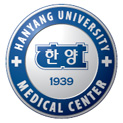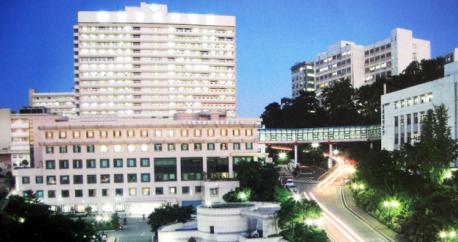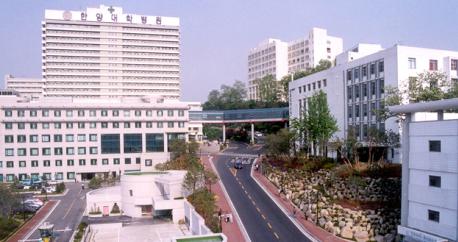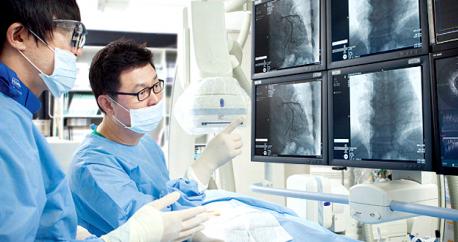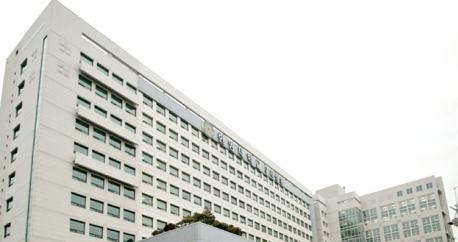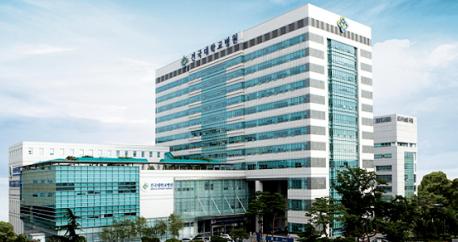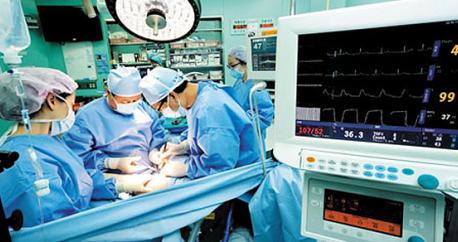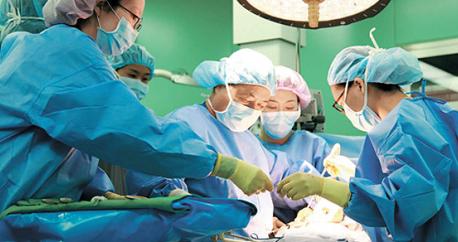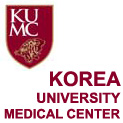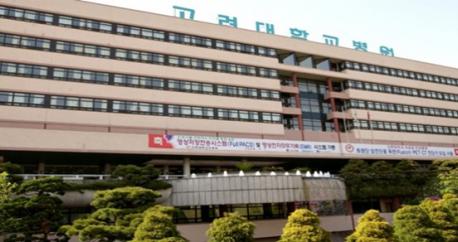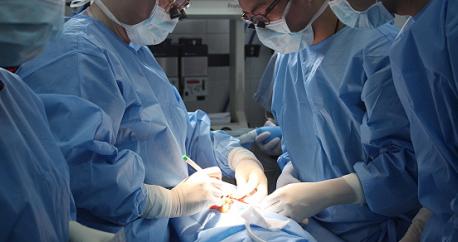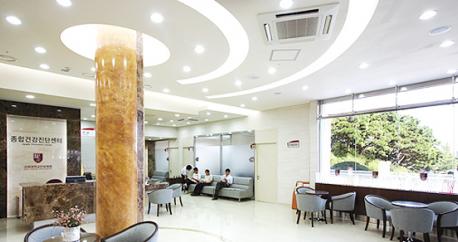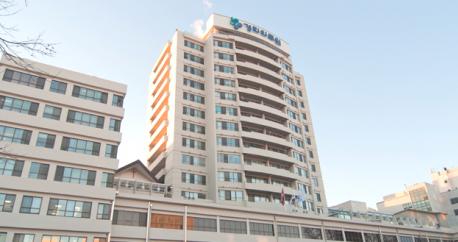Gastric Cancer
Malignant tumors of the stomach is called gastric cancer and gastric cancer is the most common form occurs in the mucosa of the stomach, divided into early gastric cancer and advanced gastric cancer. Reason to separate early gastric cancer and advanced gastric cancer, the gastric mucosa has not the blood vessels or lymphatic vessels and pipe-shaped tubular structure in order that cancer cause the transition to other parts so that the complete recovery is possible if the surgery is done at this stage.
Cause and provoking factors of Gastric Cancer
- Acquired factor : Past history of gastric surgery, chronic atrophic gastritis, pernicious anemia, h. pylori infection and polypoid polyps, dietary habits, smoking, alcohol, etc.
- Congenital factor : Family history
Symptoms of Gastric Cancer
Asymptomatic case is very common even if you have stomach cancer, and the diagnosis is delayed because unusual symptoms didn’t appear or mild cases are a lot. The most common general cancer-related symptoms are as following;
- Asymptomatic
- Heartburn
- Weight loss and anemia
- Stomachache
- Nausea, vomiting
- Decrease of appetite
- Indigestion
- Gastrointestinal bleeding
Diagnosis of Gastric Cancer
- Upper endoscopy
- Upper gastrointestinal
- Abdominal CT
- Magnetic resonance imaging (MRI)
- Proton emission tomography (PET)
Treatment of Gastric Cancer
Radiation therapy
It is the treatment method to inhibit the growth of these cells and destroy cancer cells by using high-energy radiation.
Chemotherapy
It refers to treatment used the anti-cancer medicine which is the medicine of destruction of cancer cells, by making stop the growth or proliferation and affecting cells growth cycle to treat cancer and there are 3 cases for the anti-cancer medicine use as following;
- In case that cancer already caused metastasis to the whole body or In case that resection surgery is not possible because deep invasion of adjacent organs is serious the resection not possible.
- In case of using the purpose of preventing the recurrence after the surgery.
- In case of improving the treatment outcome by surgical resection after shrinking cancer as per anti-cancer medicine before the surgery
Endoscopic submucosal dissection
In case of no metastasis of perigastric lymph node of early gastric cancer, it is the surgery method to cut only gastric part with endoscopic. It cuts by using electric snare after fluffing gastric mucosa by injecting saline just below stomach cancer.
Laparoscopic gastrectomy
Surgery method to perform by operating of a specially-crafted surgical instruments and looking into the monitor through an endoscope after inserted a few tubes into the abdominal cavity without opening largely the abdomen.
Subtotal gastrectomy
It is the surgery method, in case of the occurrence of cancer in the lower part of less than middle of stomach with gastrojejunostomy of the upper part of small intestine or duodenum the cross-section of residual part by remaining the part of upper part.
Total gastrectomy
In case of cancer in the upper part of stomach,It is the surgery of connecting both esophagus Andgastrojejunal by resecting the whole of stomach
KMH Recommended Tips
- Beware of too salty or spicy foods, fatty fried foods and you should not eat a lot the foods what sugar or carbohydrates ingredients such as ice cream,candy and honey, are high.
- Small and frequent meal time by eating less than the surgery are desirable because the storage function of stomach is little after the gastrectomy.
- Intake sufficiently fresh fruit or vegetable.
- Avoid too hot or cold foods.
- No smoking and not excessive drinking.
- Reduce stress
- There might be having a variety of ups and downs in emotion of cancer patients ranging from the stage of cancer diagnosis. You have to know related information in order to get professional help as needed for the management of emotional change and mental stress.
- Examination of body state all the time by visiting hospital regularly and being fully aware Notice related to treatment in addition to this.
Colorectal Cancer
Cololectal cancer refers to malignant tumor composed of cancer cells generated in the colon. Colon is divided into 4 layers such as mucosal layer, submucosal layer, musclular layer and serosal layer from the pipe-shaped inner tube and the majority of colorectal cancer is adenocarcinoma occurred in the mucosa of colon, and it called colon cancer, the cancer generated in the colon epending on where the cancer is occurred and rectum cancer the cancer generated in the rectum.In addition, lymphoma, sacoma, squamous cell carcinoma and metastatic lesions of other cancers.
Cause and Provoking Factors of Colorectal Cancer
There are dietary factors, obesity, genetic factors, colonic polyps, inflammatory bowel disease, lack of exercise, alcohol intake, age over 50 years and more as the risk factors of colon cancer.
Symptoms of Colorectal Cancer
Colorectal cancer early do not have mostly any symptoms and it is already quite advanced in case that symptoms appeared. Major symptoms of colorectal cancer is as follows;
- Change in bowels elimination habits such as changing the number of bowels changes or difficult to do
- Bloody stool (scarlet or black and red color) or mucous stool
- Tapering bowels than ever before
- Abdominal discomfort (abdominal pain, abdominal distension)
- Reduction of weight and strength
- Fatigue
- Loss of appetite, indigestion, nausea and vomiting
- Abdominal tumor and etc.
- Anemia
Diagnosis of Colorectal Cancer
Rectal examination
It is the examination to see whether abnormal rectum mass is touched after the doctor inserted lubricated gloved hand into the rectal and 35% of the entire colorectal cancer will be diagnosed with this test.
cancer embryonic antigen (CEA) test
Fecal Hemoccult test
Stool examination is to determine the blood composition of stool.
Colonoscopy
It is the most accurate diagnostic method of colon diseases as a method observing the entire colon by inserting an endoscope through the anus.
Double contrast colon examination
It is the method to examine whether the mucosal inside colon has problem or not after inserting a small tube through the anus and putting barium contrast material and then internal colon expanded into the air.
Computed tomography CT
Computed tomography (CT) virtual endoscopy
It is the examination method to obtain slice thickness of 1 ~ 3mm of cross-sectional images using spiral computed tomography after injecting with air or only carbon dioxide and then inflating the colon by Inserting a small tube through anus.
Magnetic resonance imaging (MRI)
Abdominal ultrasonography
Positron emission tomography (PET) and PET-CT examination
It is method discovering cancer cells through gamma rays emitted from cover material after attaching positron emission to cover material in glucose and then injecting by using the point that cancer cells is generally faster than normal cells in metabolism.
Treatment of Colorectal Cancer
Radiation Therapy
It is the treatment method destructing cancer cells by using high-energy radiation and inhibiting the growth of these cells.
Chemotherapy
It is the treatment to use anti-cancer medicine which destruct cancer cells by stopping the growth or proliferation affecting celle growth in cycles for the treatment of cancer.
Endoscopic Treatment
ESD: endoscopic submucosal dissection
It is performed on early colorectal cancer meeting all conditions that degree of differentiation of cancer cells is good and cancer cells didn’t invade the blood or lymphatic and cancer cells was not confined to only the part of mucosa or submucosa tissues.
Surgical Treatment
- Resection of the right colon : Resection including the small intestine and cecum, ascending colon, transverse colon if you have lesions in the proximal part, cecum, ascending colon and transverse colon. After resection, the remaining both small bowel and transverse colon is connected.
- Resection of the transverse colon : Both the ascending colon and descending colon are connected after resection of the entire transverse colon in case of the lesion in the middle of transverse colon.
- Left colon resection : Both the transverse colon and sigmoid colon(S ascending colon) are connected after the resection of the whole of part if there are lesions in the descending colon, end of the transverse colon, and splenic flexure.
- Anterior Resection : Both up and down are connected after the resection of sigmoid colon (S ascending colon) if you have lesions in sigmoid colon (S ascending colon).
- Low Anterior Resection : Both remaining sigmoid colon (S ascending colon) and rectum are connected after the resection of part of rectum if you have lesions in the connection part, upper or middle part of rectum.
- Abdominal-perineal resection : Producing an artificial anus(ostomy) blocking anus part after the resection of entire rectum including anus if you have lesions in the middle part or lower part of rectum.
KMH Recommended Tips
1. Living tips for the prevention of colorectal cancer are as followings;
- Do not be picky with a variety of food intake.
- With plenty of fresh vegetables and fruit intake.
- To maintain a healthy weight
- Regular exercise
- Reduce overall fat intake
- Avoid excessive drinking
- No smoking
- Removing and identifying colon polyp through regular examination are most important.
